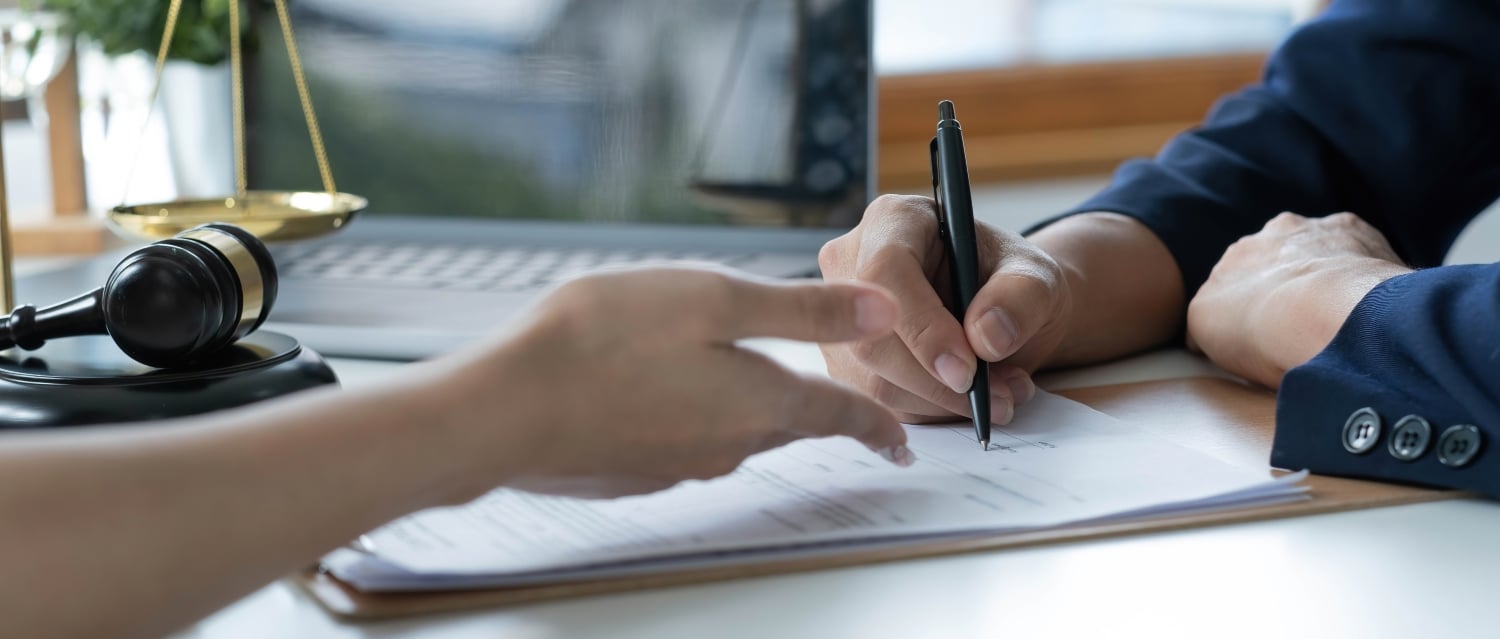As an international buyer, understanding the legal landscape when purchasing property in France is crucial. Although foreigners have the right to buy property just like French citizens, the legal process can differ significantly from that in your home country.
For this reason, enlisting the services of an independent, multilingual lawyer who specialises in property law is essential.
Contents
- Choosing the right lawyer
- The role of your lawyer
- Legal and notaire fees
- Common legal requirements for property owners

Find a Spanish solicitor you can trust
Choosing the right lawyer
Finding a reputable solicitor is key to a smooth property transaction. Start by using search engines to locate lawyers in your desired area. You can also seek recommendations from friends or family who have previously purchased property in France. We can also connect you with trusted legal partners.
If you’re struggling to find a suitable lawyer, consider contacting the French Bar Association.
It is important that your lawyer operates independently of any other parties involved in the transaction. This ensures they are solely focused on your best interests throughout the buying process. Here are some factors to consider when selecting your lawyer:
- Relevant expertise: Ensure your lawyer has experience in property law and any visa or residency matters you may need assistance with.
- A good reputation: Check reviews and testimonials on platforms like Google and Trustpilot.
- Fees: Inquire about the firm’s fee structure and how and when you will be billed.
- Communication: Look for someone who communicates clearly and whom you feel comfortable talking to.
Once you have shortlisted a few firms, schedule consultations to discuss their services. Keep in mind that not all firms offer free initial consultations. This is a good opportunity to ask questions about their experience, approach to your case, and fee structure.

There are many protections in place for buyers when making an offer on a home
The role of your lawyer
Your French property lawyer will oversee the entire purchasing process and can advise you on visa, tax, and inheritance issues – particularly if you are not fluent in French. They will ensure you understand the contract and any relevant documentation throughout the transaction.
Establishing the property’s ownership structure and inheritance rights is critical, especially for unmarried couples or those with children from prior relationships. Your lawyer will guide you through key processes, including the compromis de vente (preliminary sale agreement) and the acte de vente (final sale deed). While notaries often have multilingual capabilities, having a dedicated lawyer ensures you have someone firmly on your side.
If you need to be absent during the signing of these documents, you can grant your lawyer power of attorney. This allows them to sign on your behalf, facilitating the process without unnecessary delays.

Careful planning can help you prepare for or even avoid purchase fees
Legal and notaire fees
Legal fees vary based on the complexity of your transaction and the firm you choose. It is best to directly inquire about rates from prospective law firms. On average, property lawyers in France may spend around 20-25 hours on a typical overseas property transaction. The cost will depend on the lawyer’s experience level and hourly rate.
Some firms offer flexibility by allowing clients to pay for specific services instead of a comprehensive package, which can be ideal if you only require assistance with certain aspects of your transaction.
It’s important to differentiate between legal fees and notaire fees. Notaire fees are associated with the acquisition of property in France and are always the responsibility of the buyer. These fees can include administrative costs, notaire’s office fees, and associated taxes. Typically, notaire fees range from 7-8% of the property price for existing homes, while new builds might be lower, around 2-3%. Factors influencing the fee structure include property type and location, so it’s advisable to prepare for these costs when budgeting your purchase.

There’s no telling how quickly this scheme will pass into law
Common legal requirements for property owners
Owning property in France comes with ongoing legal requirements that you should be aware of. Aside from taxes related to ownership, you may have obligations related to rental income and inheritance laws. Consulting with your lawyer will help you understand these obligations clearly, ensuring your compliance and protecting your investment.
In conclusion, hiring a knowledgeable and experienced lawyer can significantly streamline the process of buying property in France. With their guidance, you can navigate the complexities of French property law with confidence, securing your dream home without unnecessary stress.





